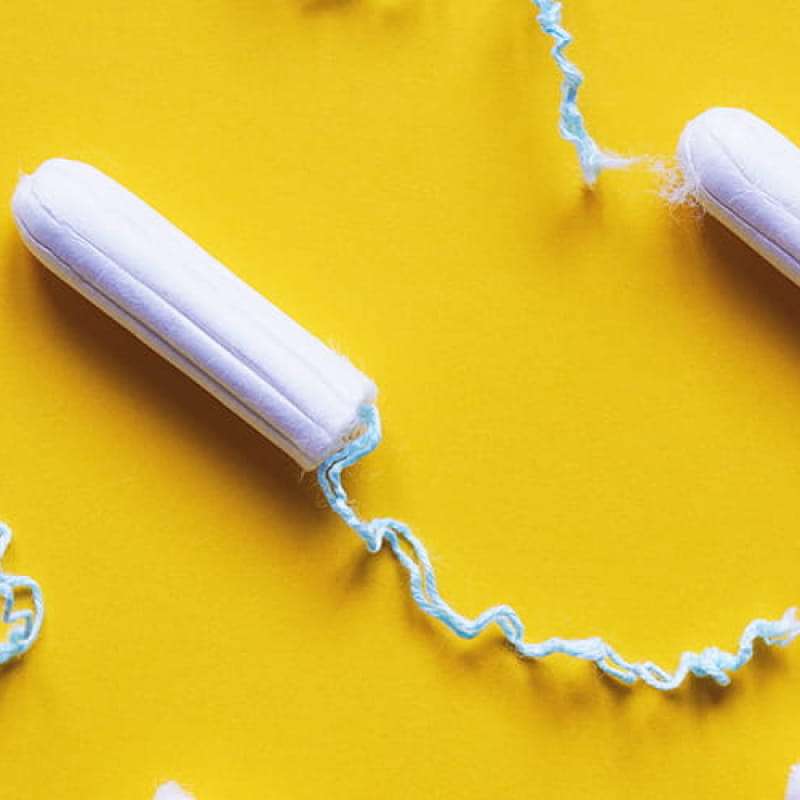
Here’s a fun fact, the ancient Egyptians used wood from the papyrus plant as an early type of tampon, but does this count as period-tech? Even Cleopatra had a period! In a lot of ways the ancient Egyptians were ahead of their time in the understanding of women’s health, they even thought menstrual blood had some medicinal properties such as curing leprosy (I said they were ahead of their time not necessarily scientifically accurate).

Sadly in the thousands of years that followed our understanding of the female body and specifically the female menstrual cycle didn’t progress much further. If anything, the societal view of women’s periods has regressed since then, with millions of women around the world still being ostracised and isolated. Women are often told that periods should be a source of embarrassment and discomfort, despite the fact they are a natural part of a woman’s cycle.
Luckily, views around periods are starting to change
In fact 2017 unveiled the first ever sanitary product advertisement featuring red ‘blood’, in a move to normalise periods and the products surrounding them. With this cultural shift of opinion comes increased knowledge, understanding, and the birth of a new technology sector: ‘Femtech’.
Although a somewhat disputed term, ‘Femtech’ generally refers to research and technology that addresses women’s health, which currently only makes up 4% of current health funding (despite almost 50% of the planet being female). It is a growing market, with almost $1 billion of funding provided towards Femtech between 2015 and 2018. These are some of the advancements being made in period-tech, making it easier than ever for women to take control of their periods.

Period Tracking Apps
Period tracking apps have been around since at least 2013, though they have seen a significant uptake in users since 2019. Although women have been keeping track of their period without the assistance of technology since time began, you would be hard pressed to find a woman who hasn’t been caught short without a tampon or sanitary towel and has had to resort to some creative measures! Period tracking apps work by tracking when you are on your period and when you will most likely be ovulating. Some women use this as a form of contraception, but this is generally pretty risky as even the app creators admit that every woman’s cycle is different and they cannot be recommended as a secure form of contraception. The real benefit of these apps is debatable, but does represent the current trend of healthcare related apps and ‘AI’ diagnosis.
Period Pants
Here’s some more period history for ya! In the 1800’s all the way through to the 1970’s (shock) women would wear ‘menstrual belts’. These are exactly what you think they are, belts that wrap around the waist and hold up a sanitary towel, kind of like a nappy. Obviously we have improved things since then, but for some women even modern sanitary towels can feel bulky and unflattering. The recent progress in ‘period clothing’ has solved this issue, from underwear with inbuilt ‘pad’ holders to super absorbent pants and leggings, there is a different option for every day of the week thanks to new period-tech.
‘Smart’ menstrual cups
Perhaps the next step in the ‘tracking app’ genre of Femtech is the ‘smart’ menstrual cups. Menstrual cups have been growing in popularity over recent years due to their decreased environmental impact and wear time over tampons and pads. Startup companies such as LoonCup are developing a period-tech software that measures the amount of liquid in the cup, the colour of the blood, tracks your cycle accurately and measures body temperature. All of these factors can be used to provide you with important health data far more accurately than a standard tracking app. Though don’t get too excited, as of yet it is still on pre-order, but is a sign of period positive things to come!
Online contraception and period delay
Even today women around the world struggle to buy contraception due to the prejudice and misunderstanding surrounding women’s periods. Luckily for women in the UK access to contraception has never been easier, with sites such as e-Surgery and other online pharmacies offering free advice as well as easy prescriptions that can be delivered to your home. Period delay tablets also offer a great alternative to the standard contraceptive pills by temporarily delaying your period for up to 17 days. You can read here for more information in our article ‘3 Ways You Can Delay Your Period‘.

Drug-free period pain relief
Around 80% of women have experienced some kind of period pain, and 5-10% of women experience pain extreme enough to disrupt their life. There are a variety of methods to manage period pain including resting, exercise (even though curling up in a dark room with a gallon of ice cream often feels like the better option), contraception and ibuprofen. A drug free alternative is a TENS machine, which works by sending small pulsations through pads placed on certain areas of the body, encouraging nerve stimulation and for some helps reduce tension and pain. Although it’s effectiveness is somewhat disputed, for some women it can provide some much needed temporary relief. TENS machines are now available in pocket sized, brightly coloured units, a far cry from the bulky, medical machine you might find in a hospital!
Period-tech is becoming an increasingly growing sector of the healthcare industry, a sign of increased awareness towards women’s issues and health. Unpleasant periods could be a thing of the past!
Further Reading
- Your Contraception Guide | NHS
- Everything You Need To Know About Using Menstrual Cups | healthline
- Norethisterone Period Delay Tablet | National Institute For Health And Care Excellence









